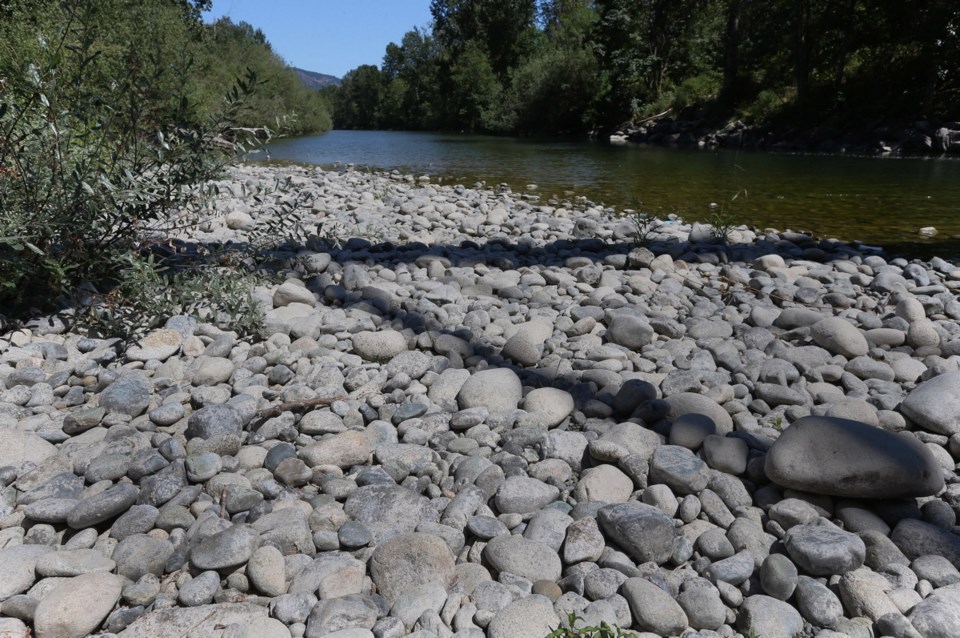The B.C. government has closed rivers and streams to fishing on Vancouver Island and the Gulf Islands after raising the drought rating to its highest level.
Campfires have been banned provincewide and other open burning severely limited.
Conditions reached a point where the fishing restrictions became necessary, said Steve Thomson, minister of forests, lands and natural resource operations.
“Some are saying, ‘Maybe it should have happened sooner,’ but we wanted to make sure the science was right,” Thomson said.
Starting today, fishing is closed in all streams and rivers on the Gulf Islands and about half of them on Vancouver Island. The closing covers the area south of Bamfield on the west coast and south of Campbell River on the east coast.
When rivers get low, fish can be trapped or stranded in pools, cut off from the main stream. As a result, salmon, steelhead trout and other fish can fail to make it upstream to spawn. Also, the shallower water can become too warm, causing stress to fish and making them more vulnerable to diseases. The closing will help to protect fish stocks when they are especially vulnerable.
Major rivers affected by the closing are Caycuse, Chemainus, Cowichan, Englishman, Gordon, Little Qualicum, Nanaimo, Nitinat, Oyster, Puntledge, San Juan, Sooke, Trent and Tsable.
The Qualicum (Big Qualicum) and Quinsam rivers have enough water to protect fish populations and are exempt.
The province is urging all residents to conserve water, especially those drawing from wells, lakes and streams.
Joe Saysell, a longtime guide on the Cowichan River, now retired but still active in a group called Friends of the Cowichan, said his group and others have been writing letters since May urging the rivers be closed to fishing.
“The government shouldn’t have had to be pressured like this,” he said. “I don’t know how many letters they have received from I don’t know how many groups, but I do know it’s an awful lot.”
A group that expressed happiness Friday was the Cowichan First Nations. It voluntarily suspended its own fishery on the river in May and asked the province to consider doing the same. “So I’m glad [the province] is taking this drought seriously,” said Bill Seymour, elected chief of the Cowichan Tribes.
Seymour said the Cowichan peoples close the river every year to preserve fish stocks during the summer. Right now, the Cowichan River is a creek, it’s so low, he said, though some sizable chinook salmon are getting through.
Matt King, manager at Robinson’s Outdoor Store, 1307 Broad St., said he agrees with the closing. “We sell fishing gear, so it might not be beneficial for us to have a closure, but it’s a benefit for the fish.”
The province said the wildfire risk is too high to allow campfires. “Given the hot and dry conditions in most of the province, we are implementing this provincewide campfire ban to help protect our communities,” Thomson said. Only the fog zone, a strip along the west coast of Vancouver Island, is exempt.
Gas, propane or briquette cooking stoves, and CSA-approved portable campfire systems with flames of 15 centimetres or less are still allowed.
Penalties for violating the campfire ban begin with a $345 ticket and could include an administrative penalty of $10,000 plus fines of up to $100,000 and a year in jail.
— With files from The Canadian Press



